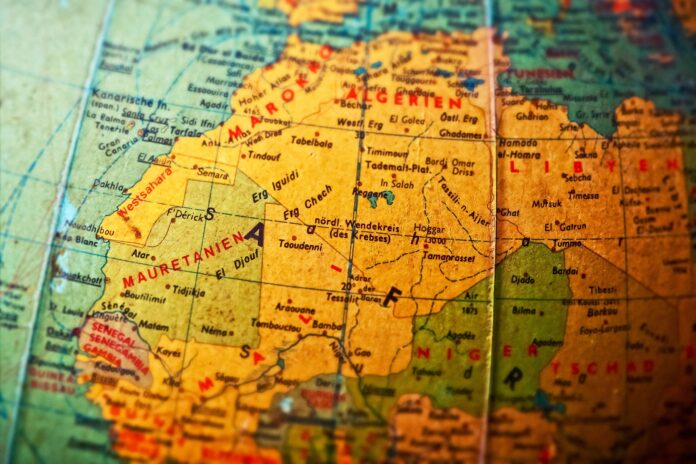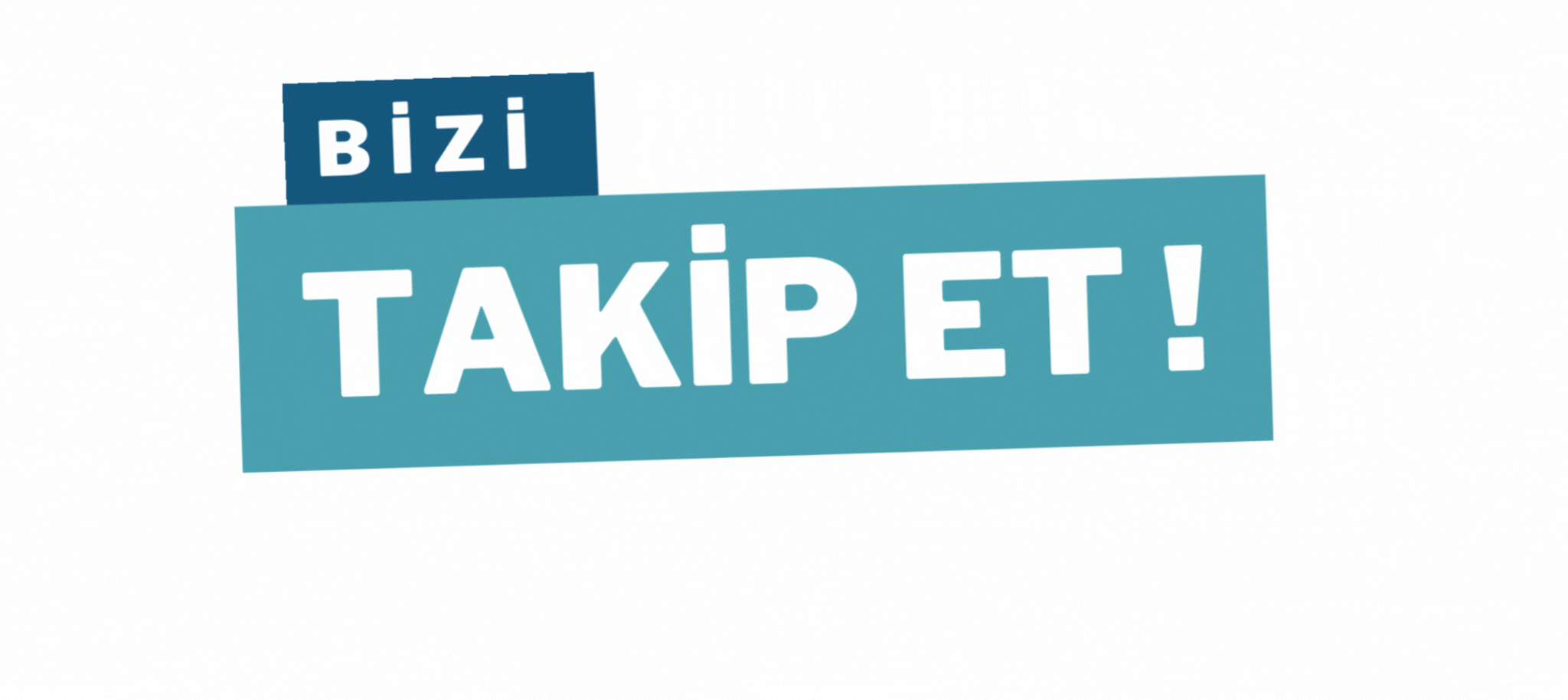Abstract
For many years, the Maghreb region has been experiencing political, economic, and social problems. Bad political governance and resources course are the main problems of the region. States’ economic strategies cannot fulfil the expectation of their societies. This created unrest among the population of Maghreb and ended up with demonstrations in 2011. This essay is based on many literature reviews on Morocco, Tunisia, Algeria, Libya’s political economy. Many studies have revealed that the region has lots of economic inefficiencies. However, it seems that there is a possible way to overcome these difficulties and establish a stable environment for its people both politically and economically if political confrontations are solved.
Keywords: Maghreb; Morocco; Tunisia; Algeria; Libya; Political Economy
Introduction
Although the Maghreb region shares the same religion, ethnicity, and language, it is the least integrated region in the world, economically, socially, and politically. This lack of integration led to poor economic performance, which is the main reason behind the social unrest and political instability. This paper first analyzes the shortcomings of the region then proposes a solution to these problems. It is pretty beneficial to divide the Maghreb into two categories: rentier states of Algiers and Libya on the one hand, and on the other hand, small middle-income states of Morocco and Tunisia. Mauritania is excluded in this research because of its insignificant economic and political power. If an economist sees the region, he or she will immediately realize that it is full of inefficiencies, economically speaking. While Algerian and Libyan states have their problems thanks to structural problems created by oil rents, Morocco and Tunisia suffer their fiscal problems. All of the four states are failing to establish institutions to achieve economic development.
The Paradigm of Economic Development in the Region
State and market relations in the Maghreb have their roots in the 1930s. States in North Africa started their economic strategy as interventionist and redistributive. In the 1930s, the years of the Great Depression, state has become the primary paradigm of regulation and redistribution of wealth and welfare (Yousef, 2004, p. 94). Central planning and protectionism seemed as the only way to succeed in the economy. Keynesian understanding became dominant. Also, the nation-building process of these states required the support of large segments of society, which later pushed for more interventions policies, such as in Tunisia through the Tunisian General Labour Union (Yousef, 2004, p. 94). Lastly, oil revenues were one of the main reasons why the state has become the main player in the economy. Huge profits from oil made it easy for countries like Libya and Algeria.
These policies led to a ‘governance gap’ because revenues from natural resources did not require governments to levy tax from the population, which created a gap in government institutions and enabled authoritarian regimes to feed their security apparatus like in Morrocco and Libya(Yousef, 2004, p. 96). These states did not need to establish institutions like Western Europeans did to maintain states’ capabilities which required well-established bureaucratic structures. In the end, the region ended up with the lowest rates of good governance.
Resource Curse
Two of the four states, Libya and Algeria, can be classified as rentier states that created their own unique economic, political, and social structures. It is essential to understand the resource curse because, in a classical understanding of economics, it is expected that these vast resources would be beneficial for economic development and growth. To be a rentier state, there should be four phenomena: rent should dominate the economy; this rent must subsidize the economy so there should be no need for other sectors, only a tiny percentage of the population join the rent generation, which creates a division between state and society; and state must be the primary recipient of rent (Al-Rawashdeh et al., 2013, p. 17). Algeria and Libya meet the conditions while Morocco and Tunisia have over 85 percent of their export from non-oil sectors (Al-Rawashdeh et al., 2013, p. 19). Diversification of economic activities through the support for other sectors can be a solution to the problem of rentierism, which will be discussed in the following pages (Al-Rawashdeh et al., 2013, p. 28)
To understand how a natural resource can be detrimental to the economic performance of a nation, one should first make a division between weak institutions and strong institutions, which are decisive. The resource curse is a term to the point that unlike it is expected that resource-rich countries tend to fail economically. Qualitative researches show that economies with a high ratio of natural resource exports to GDP in 1971 had abnormally sluggish growth rates (Ross, 1998, p. 300). When a resource is found, two things follow. Firstly, a rise in the exchange rate due to a rise in export, and secondly, a new sector flourishing due to newly found resources pull capital and labor from other sectors. These nations become much more dependent on the oil sector, in which prices can be too unstable. Also, when this abundance of resources is combined with institutional shortcomings results in huge government expenditure (Yousef, 2004, p. 99).
On a socio-political explanation side, because of rent from the oil sector or natural gas, the government does not need to levy tax from its population. This halts rentier states to become more democratic and liberal markets [(Ross, 1998, p. 312), (Schwarz, 2008, p. 604)]. As Schwarz shows for Algeria, for example, oil contributes 35 percent of its GDP and nearly all of the export (2008, p. 608). Algeria is the biggest natural gas producer in Africa and the second biggest supplier to Europe, and it has the third-largest oil reserves in the continent (Escribano, 2016, pp. 3–4). For Libya, rent is the oil money. In addition to the low level of economic diversification, subsidies are too high, nearly 49 percent of the state budget (Escribano, 2016, p. 10). It should be kept in mind that rents are not limited to oil money, but there are also international aids.
Rentierism is causing two pivotal problems. First, it is an obstacle to the flourishing of democratic regimes. Secondly, it leads to a social contract that jeopardizes political rights for welfare (Schwarz, 2008, p. 610). Oil has a negative impact on democratic rule, as shown by statistical research (Ross, 2013, p. 7). First, it enables authoritarian rulers in power to continue their oppression. Secondly, oil revenues attract greedy rulers by increasing the value of executive power (Ross, 2013, p. 10). Therefore, social, political, and economic changes and reforms are being executed in times of huge economic crises, which pushed elites to deal with a budget deficit.
Ruling Elite
The ruling elites have excelled in maintaining control over resource allocation. These established elites use political power as a means to control private business. They favor ‘businessmen’ who have good ties with regimes (Schlumberger, 2000, p. 250). While the prevailing elites were able to seize the acquisition of resources, they could not be utilized those resources in production. These resources are using as subsidize the cost of living of the population, which is motivated politically. Subsidies are government measures that guarantee lower prices less than the market level (El-Katiri & Fattouh, 2017, p. 2). This alimentation process ends up an unproductive and inefficient economic burden. In Morocco, for example, a portion of the money that is spent for energy subsidization is equal to investment and more than education and health costs(El-Katiri & Fattouh, 2017, p. 3). This massive sum of money could be used more efficiently, such as infrastructure investments which are quite inadequate in the region.
These rent-lover states caused rent-seeking domestic market. Wasta is the Arabic word to describe the situation, which means intermediation between private relations of political and business elites. These kinds of systems favor personal networks over merit and productivity (Schlumberger, 2000, p. 251). If competition in the market is accepted as the main principle for economic success, state apparatus is the main problem in the Maghreb. The sociopolitical orientation of the economy leads to a hostile place for newcomers who do not have linkage to the ruling elite. Also, this way of making business scare away international investors, although these states need Foreign Direct Investment to maintain their economy.
The winds of change started to blow in the 1970s and 1990s due to the declining price of natural resources. North African states had no choice rather than liberalizing their markets and open up to the globe (Dillman, 2001, p. 199). Macroeconomic indicators push elites to reform (Yousef, 2004, p. 99). Neo-Liberal reforms were started first in Tunisia, followed by Morocco. However, State and Business relations started to be affected in a very different way than it was expected. North African regimes selectively restructure their economies, using reforms and repression to mitigate many of globalization’s purportedly regime-challenging effects. Incumbent elites may undermine democracy by choosing ways to engage in global markets subtly, sustaining distributional coalitions and a dependent local private sector. Regimes benefit from rising capital inflows, limiting access to profits and rents, and substituting for some decreasing resources through limited market reforms. (Dillman, 2001, p. 201). As Dillman states, ‘’limited privatization, partition sales, sales to anchor investors, the public stock market offers, contracting-out of services, worker buyouts, and liquidations’’ are a few examples of this dirty work (Dillman, 2001, p. 207). In Morocco, for example, privatization has enriched the Royal family rather than removing resources from government control. White predicted that these reforms would make the market less attractive to foreign investment, less secure, and more prone to migration (2001, p. 851).
Small Middle-Income States
Other than Algeria and Libya, Tunisia and Morroco are middle-income countries without oil rents. These states had to follow a different economic policy, development strategy to overcome their economic difficulties. These two countries have been racing for new and closer ties with the EU since the 1970s. Tunisia is leading this race because its smaller economy and its domestic politics did not give policymakers any other alternatives (White, 2001, p. 4). However, Morroco was able to be more slowly due to its bigger economy and its domestic character. It takes them until the 1990s, thanks to lower phosphate prices which is enormous for the Moroccan economy.
The relations between the EU and Maghreb caused dramatic changes in domestic economies and politics in Southern Shores of the Mediterranean. Starting from the 1970s, EU’s protectionism, economic recessions in developed countries, Second Enlargement of the Union have detrimental effects. Also, both countries experienced opposition of Islamist movements because of their unequal relations with the West.
To understand in what way these adjustment policies affect, policy choices must be examined. As White (2001, p. 11) puts it, the state is an intermediary actor between international and domestic realms. In his book, he used Wallerstein’s ‘World System Theory’ which classified countries as core, periphery, and semi-periphery. According to this understanding, there is a ‘unequal exchange’ between the weak and stronger. There are two tactics to overcome this inequality, one is the process of Import Substitution Industrialization (ISI), which is aiming to favor domestic industrial production through the high tariff barriers, and the other one is persuading multinational corporations to invest in the domestic economy (White, 2001, pp. 13–14). In the end, the state is both a player in domestic and international economic spheres.
Tunis and Morrocco, both small middle-income countries, are open to the danger of international economic instability because of import means inflation, and this can cause lots of problems, like a deficit in the balance of payments. Also, the two states are both former colonies that end up with less diversified economic activities. The heritage of colonialism is not only limited to this, but also their target market is tied to former masters. All of these make them much more vulnerable economically, and they cannot continue to protectionist policies due to their small size.
A short time after their independence from colonial rules, the Maghreb region’s agricultural export was restricted as a result of the Common Agricultural Policy, which was introduced in 1960. These agricultural productions mainly were aiming at the European cities. The second Enlargement in the 1980s was the second blow to North Africa because newly admitted countries, like Spain and Greece, both producing similar industrial and agricultural products like olive oil, have the advantage to access developed markets.
Tunisia started its new policy direction in 1971, after following ISI policies of the 1960s, aiming for new job creations, more growth rates of GDP, and firms’ profits (White, 2001, p. 30). However, the opening programs did not work well both economically and socially. Tunisia experienced riots in 1978 and 1984. However, Morocco’s natural resource advantages, the bigger size of its economy, and the palace’s desire to dominate the economy served as a deterrent to liberalizing foreign commerce. In the early 1980s, phosphate prices were falling, and fiscal problems were huge for Morrocco (Yousef, 2004, p. 98).
White (2001, p. 34-41) counts four dynamics behind the differentiation of policies of two countries. These are elites’ ideology, type of government, economic resources, and international environment. While the Tunisian elite is united, secular, and more pro-western, the Moroccan elite was less uniform, differentiation between urban and rural elites. The regime is another factor while the Tunisian state continued its ties with its society. Morrocco did not achieve this social linkage and became the focus of criticism for human rights violations. Two Countries have different economic conditions. Their natural resources, populations, education level of society are just a few examples. The last factor is their position in the international system. Both countries are located in the south of the European Union, making them essential partners for the West because of their role in the Middle East and their role in security.
Results of opening programs were massive for the two countries. Rural economic activities have declined. For example, Tunisia has become from ‘Rome granary’ to an importer of comestibles (White, 2001, p. 44). Secondly, two countries experienced massive intranational migration from rural to cities having industrial production alongside to coasts. This new industrialization caused environmental crises due to unregulated activities. Lastly, these policies affected the unfavorably lower section of the population, most of which would be radicalized through the Islamic and Communist movements.
After its independence in 1956, Tunisia followed first ISI policies, then opening policies and export-oriented growth, and finally accepted Structural Adjustment programs in the mid-1980s. The economic crisis caused by the drop in oil prices, the drought of 1986, and the fall in tourism income pushed Tunisia to accept International Monetary Fund’s programs (White, 2001, p. 118). IMF reforms created significant problems for men on the street. State subsidies to food were canceled, which increased the cost of living. Also, intifah, the opening, cut Tunisia in half. While coastal cities got investment and employment, inner parts only got about ten percent of them. On the other hand, Morocco has been slower to open to Europe due to its larger size and internal political reasoning (White, 2001, p. 147).
Results of Reforms
There is excellent work that shows that economic reforms can cause social unrest because they immediately affect existing sectors due to removed protectionist measures. However, it takes time to create employment in new sectors. Also, because these policies applied most of the time in regimes trying to move from authoritarian rule, which there is the lack of institutionalization, to more democracy, investors are reluctant to take steps in such as in Tunisia, Morocco, and Algeria (Addison & Baliamoune-Lutz, 2006, p. 1030). The new system become Crony Capitalism through which only people who have personal links to political power, and there is no ‘rule of law, transparency, and good governance (Sika, 2012, p. 7).’ For example, it is known that half of the business people are linked to Ben Ali in Tunisia (Escribano, 2013, p. 10). The governments have carried out economic reforms by retaining power by controlling the economy and politics. All these policies increased the social tensions.
These new events challenged the prevailing social contract, which is based on welfare, employment, public healthcare, low taxes for the exchange of political freedoms (Sika, 2012, p. 17). Also, these welfare policies led to a massive process in society, life expectancy detrimentally increased, and education rates increased (Mouhoud, 2012, p. 37). Thus, societies become much more demanding from their states. However, the region is experiencing the highest rate of unemployment among university youth. These states can be classified as ‘predatory states,’ but not ‘developmental’ (Sika, 2012, p. 27)
There was concerns concerns that in 2009, the Maghrebi economy’s gradual openness to European markets would result in catastrophic economic turmoil rather than job creation (Wall, 1996). (White, 1999, p. 847). The Maghreb had lost its agro-alimentary self-sufficiency by the 1970s.’ because of CAP and newly admitted Spain and Italy, which produce similar goods. Common Agricultural Policy has three components: arranging the prices charged for agricultural commodities by consumers with the price promised, taxing critical agricultural commodities, and supporting European exporters (White, 2001, p. 54). The first two of these mechanisms made it hard for Maghrib export to penetrate the European market.
Since its adoption in the early 1960s, the EU’s Common Agricultural Policy has contributed to the collapse of the Maghreb’s agricultural sector(s), resulting in urban migration within Maghrebi nations and, as a result, emigration to Europe (White, 1999, p. 840). What are the reasons behind this? A significant difference in living conditions and economic development between North and South, wage remittances, North’s cultural dominance, and Europe’s need for the labor the main reasons(White, 1999, pp. 840–843). As the state offers less for its citizens’ social security, militant Islamist groups that can provide social services may acquire more popularity due to privatization and deregulation (Schlumberger, 2000, p. 257), (Yousef, 2004, p. 99).
Intra-Regional Trade
As it is stated in one of IMF reports, high trade restrictions are one of the main problems behind the weak economic activities (Abed & Davoodi, 2003, p. 9). From a liberal perspective, it can be claimed that free trade promotes peace by increasing the cost of conflict between states and providing trust to actors (Chabbouh & Asmi, 2018, p. 93). Although trade is possible between geographically close countries, there are some studies shows that conflicts are more common in physically adjacent nations than in geographically distant ones (Chabbouh & Asmi, 2018, p. 94). One reason for this could be the territorial disputes among the border-sharing states. Maghreb region is an excellent example of that because their borders are the burdens inherited from colonial rule. There is a mutual relation between trade, peace, and conflict. While trade can pave the way for peace, conflicts can jeopartise possible trade relations.
The region has the lowest rate of integration than anywhere in the world, which is below 4 percent (Chabbouh & Asmi, 2018, p. 99). It is quite below its potential of 15 percent (Barth, 2019, p. 2). The region has tariffs twice high as the world average (World Bank, 2015). Also, intra-region logistic infrastructure has not developed quite well. They have their free trade agreements with the EU, which is also quite problematic. For example, Tunisia imports fish from Italy that also imports fish from Morocco (Allouche, 2019, p. 10).
Terrorism has resulted in stricter limits on the movement of persons and goods within the region. The main organization responsible is Al-Qaeda in the Islamic Maghreb. Also, regional conflicts, the Western Saharan dispute, is the main reason why the border between Tunisia and Algeria, and Morocco and Algeria (Brunel, 2008, p. 4). These factors make integration impossible.
Regional Integration and the Dream of Union
The Arab Maghreb Union attempted to promote economic growth and development, peace, free movement, and free capital transfer throughout the region (Adrià Albareda, 2011, p. 13). The establishing treaty of the AMU stipulates policies in different areas such as economy, international affairs, security, and cultural issues. Organizational structure is consisting of different bodies in each country. However, the Presidency Council, containing the heads of states, is the only body that can make decisions based on unanimity (Treaty establishing the Arab Maghreb Union, 1989).
This effort of regional integration has failed to succeed because of political disputes between parties. For 25 years, the Presidency Council has never been taken place. Some scholars point to the leadership problem as an international public good (Adrià Albareda, 2011, p. 14). It is logical to see it as a problem of inertia of the leaders of these states. However, some academics propose that it is so because these countries’ economies are more competitive than complementary (Adrià Albareda, 2011, p. 15). On the other hand, another research shows how these economies are more supplementary to each other than to the EU market (Kireyev et al., 2019, pp. 21–22). Intra-regional trade is lower by four-thirds of its potential (Mouhoud, 2012, p. 45).
Political tension between Algeria and Morocco, which resulted from Western Sahara, between Morocco and Libya over Gafsa Affair are just a few examples of inter-state problems (Barth, 2019, p. 5). If political issues are overcome and integration is achieved, all nations will be able to maximize their profit, attract more foreign investment, create regional value chains, and strengthen their collective bargaining power, resulting in increased commerce and faster growth. (Kireyev et al., 2019, p. 19).
Conclusion
To sum up, the region is underperforming than its real potential because of lack of well-developed institutions, rent-seeking elites, unequal relations with the European Union. This paper proposes that if state elites come to an understanding to establish a sort of economic integration process by overcoming their political tensions, the Maghreb region can solve its problems because an integrated economic area can offer a more powerful tool for negotiations with third parties, can make the region more appetizing for investors.
References
- Adrià Albareda, O. B. (2011). Sub-Regionalism in North Africa and the Middle East: Lessons Learned and New Opportunities Adrià. In Euro-Med Call for Papers (Issue July).
- Barth, M. (2019). Regionalism in North Africa: the Arab Maghreb Union in 2019 (DEMOCRATIC DEVELOPMENT SERIES). https://www.bic-rhr.com/research/regionalism-north-africa-arab-maghreb-union-2019
- Allouche, Y. (2019). Regional Power Rivalry and the Failure of the Arab Maghreb Union.
- Chabbouh, R., & Asmi, E. (2018). Trade and Conflict : The Case of the Arab Maghreb Union. 20(2), 90–107.
- Yousef, T. M. (2004). Development, growth and policy reform in the Middle East and North Africa since 1950. Journal of Economic Perspectives, 18(3), 91–115. https://doi.org/10.1257/0895330042162322
- Addison, T., & Baliamoune-Lutz, M. (2006). Economic reform when institutional quality is weak: The case of the Maghreb. Journal of Policy Modeling, 28(9), 1029–1043. https://doi.org/10.1016/j.jpolmod.2006.04.004
- Mouhoud, E. M. (2012). Political Economy of Arab Revolutions : analysis and prospects for North-African Countries. Mondes En Développement, n°158(2), 35. https://doi.org/10.3917/med.158.0035
- Schwarz, R. (2008). The political economy of state-formation in the Arab Middle East: Rentier states, economic reform, and democratization. Review of International Political Economy, 15(4), 599–621. https://doi.org/10.1080/09692290802260662
- Schlumberger, O. (2000). Arab political economy and the European Union’s Mediterranean policy: What prospects for development? New Political Economy, 5(2), 247–268. https://doi.org/10.1080/713687768
- Ross, M. L. (1998). The Political Economy of the Resource Curse. World Politics, 2, 297–322. https://www.jstor.org/stable/25054077
- Abed, G. T., & Davoodi, H. R. (2003). Challenges of Growth and Globalization in the Middle East and North Africa. In PAMPHLET SERIES.
- White, G. (2001). A Comparative Political Economy of Tunisia and Morocco. State University of New York Press.
- Ross, M. L. (2013). The Politics of the Resource Curse: A Review. SSRN Electronic Journal, 1–29. https://doi.org/10.2139/ssrn.2342668
- White, G. (1999). Encouraging unwanted immigration: A political economy of Europe’s efforts to discourage North African immigration. Third World Quarterly, 20(4), 839–854. https://doi.org/10.1080/01436599913587
- Escribano, G. (2016). The Impact of Low Oil Prices on Algeria. http://nbr.org/research/activity.aspx?id=560
- Escribano, G. (2013). A political economy perspective on North African transitions. In North African Politics: Change and Continuity. https://doi.org/10.4324/9781315685410
- Sika, N. (2012). The Political Economy of Arab Uprisings.
- Dillman, B. (2001). Facing the Market in North Africa. The Middle East Journal, 55(2), 198–215. https://www.jstor.org/stable/4329614
- El-Katiri, L., & Fattouh, B. (2017). A Brief Political Economy of Energy Subsidies in the Middle East and North Africa. International Development Policy / Revue Internationale de Politique de Développement, 7(7), 58–87. https://doi.org/10.4000/poldev.2267
- Al-Rawashdeh, R., Al-Nawafleh, H., & Al-Shboul, M. (2013). Understanding oil and mineral resources in a political economy context: the case of the Middle East and North Africa (MENA). Mineral Economics, 26(1–2), 13–28. https://doi.org/10.1007/s13563-013-0035-3
- Schilirò, D. (2015). Mediterranean, migrations and economic development. Journal of Advanced Research in Economics and International Business, 3(4), 1–7. //mpra.ub.uni-muenchen.de/83051/
- Brunel, C. (2008). Political Economy of the the Maghreb. In G. C. Hufbauer & C. Brunel (Eds.), MAGHREB REGIONAL AND GLOBAL INTEGRATION. The Peterson Institute for International Economics.
- Kireyev, A., Nandwa, B., Ocampos, L., Sarr, B., Al Amine, R., Auclair, A. G., Cai, Y., & Dauphin, J.-F. (2019). Economic Integration in the Maghreb: An Untapped Source of Growth. In Middle East and North Africa Departmental Paper No.19/01 (Issue 19).
- Treaty establishing the Arab Maghreb Union, 1989
- World Bank. (2014), «Doing Business 2015: Going Beyond Efficiency». Washington, DC







Can you be more specific about the content of your article? After reading it, I still have some doubts. Hope you can help me.
Your article helped me a lot, is there any more related content? Thanks!
Thank you for your sharing. I am worried that I lack creative ideas. It is your article that makes me full of hope. Thank you. But, I have a question, can you help me?
Your point of view caught my eye and was very interesting. Thanks. I have a question for you.
Thank you for your sharing. I am worried that I lack creative ideas. It is your article that makes me full of hope. Thank you. But, I have a question, can you help me?
Thank you for your sharing. I am worried that I lack creative ideas. It is your article that makes me full of hope. Thank you. But, I have a question, can you help me?